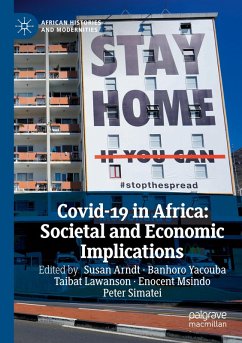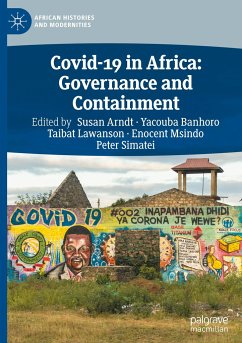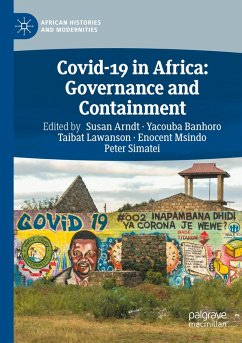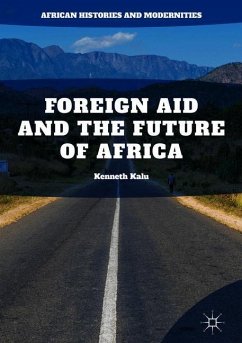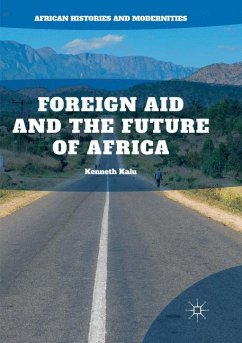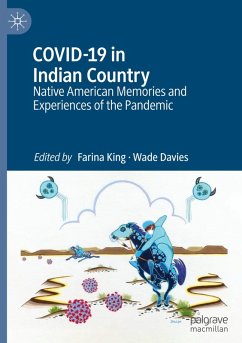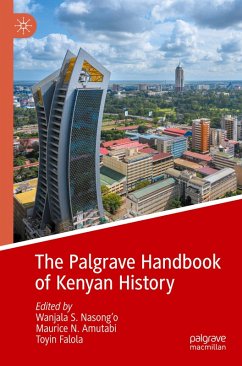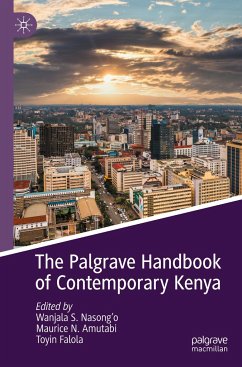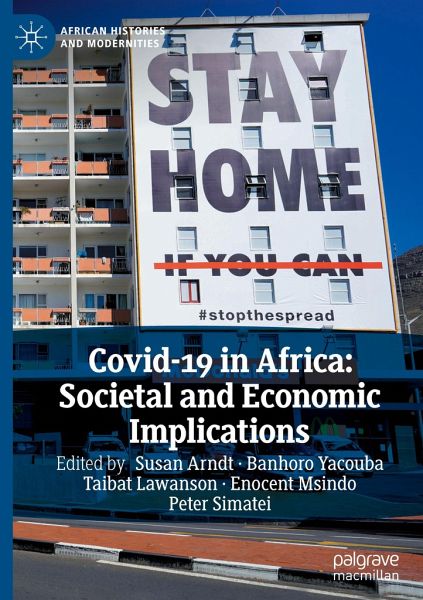
Covid-19 in Africa: Societal and Economic Implications

PAYBACK Punkte
49 °P sammeln!
Written amidst the ongoing Covid-19 pandemic, this edited volume draws on the expertise of social scientists and humanities scholars to understand the many ramifications of Covid-19 on societies, politics, and the economies of Africa. The contributors examine measures, communicative practices, and experiences that have guided the (inter)action of governments, societies, and citizens in this unpredictable moment. Covid-19 tested governments' disaster preparedness as well as exposed governments' attitudes towards the poor and vulnerable. In the same vein, it also tested the agency of the African...
Written amidst the ongoing Covid-19 pandemic, this edited volume draws on the expertise of social scientists and humanities scholars to understand the many ramifications of Covid-19 on societies, politics, and the economies of Africa. The contributors examine measures, communicative practices, and experiences that have guided the (inter)action of governments, societies, and citizens in this unpredictable moment. Covid-19 tested governments' disaster preparedness as well as exposed governments' attitudes towards the poor and vulnerable. In the same vein, it also tested the agency of the African populace in the face of containment measures and their impact on everyday social, cultural, and economic practices of ordinary people. In this vein, our concern is to understand the relationship between growing vulnerability on the one hand, and ingenuity of agency on the other, and how both were embodied, narrated and discoursed by the African poor, university students, religious entities, middle-classes, and those who bore the major brunt of the lockdowns.
The volume is thus a useful resource for scholars of Africa, policy makers and those who want to understand Covid-19 in Africa. It provides a multiplicity of perspectives of the pandemic and African responses at different levels of society, economy and the political spectrum. The continental focus of this volume gives room for broader comparative analyses. Lastly, this interdisciplinary work benefits from the input of medical historians, anthropologists, sociologists, linguists, political scientists, literature scholars, urban planners, geographers and others.
The volume is thus a useful resource for scholars of Africa, policy makers and those who want to understand Covid-19 in Africa. It provides a multiplicity of perspectives of the pandemic and African responses at different levels of society, economy and the political spectrum. The continental focus of this volume gives room for broader comparative analyses. Lastly, this interdisciplinary work benefits from the input of medical historians, anthropologists, sociologists, linguists, political scientists, literature scholars, urban planners, geographers and others.





